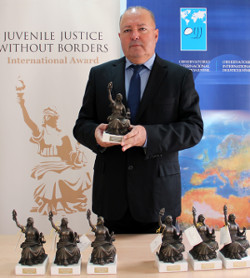
Dr. Francisco Legaz Cervantes
Chairman, International Juvenile Justice Observatory (IJJO)Welcome words of the ‘Juvenile Justice Without Borders’ International Award on its 5th Edition, 2018
“As Chairman of the IJJO, I would like to express the great honour that it is for our organisation to celebrate the 5th edition of the ‘Juvenile Justice Without Borders’ International Award.
The awardees of this edition exemplify the values that this recognition aims to promote, with a vast and remarkable body of work that contributes to the advancement of juvenile justice systems and the protection of the rights of children and young people around the world.
Their effective research, reporting, intervention, education, advocacy, among others, have improved the situation of children in many countries. They have also influenced policies, practices and programmes and brought awareness to the challenges faced by children at risk of social exclusion and in conflict with the law.”
IJJO Chairman's full welcome speech, presenting the awardeesThe awardees of this Fifth Edition are:
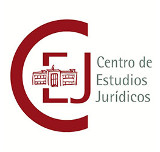
CENTRE FOR LEGAL STUDIES
Represented by María de las Heras García, Director of the CentreAwarded for its work in expanding training and updating the knowledge of legal professionals at national and international levels. Their work helps to modernise the justice system and promotes a juvenile justice system that respects international standards and focuses on the prevention of juvenile delinquency, the protection of the rights of children and adolescents in contact with the justice system, and the reintegration of young people in conflict with the law.
 “In the Center for Legal Studies of Spain (CEJ) we try to address the problem of juvenile justice both from its perspective of reform and from its perspective of protection, focusing on restorative justice with a multidisciplinary approach.”
“In the Center for Legal Studies of Spain (CEJ) we try to address the problem of juvenile justice both from its perspective of reform and from its perspective of protection, focusing on restorative justice with a multidisciplinary approach.”
“For this I wish to thank, on behalf of all of us who are part of the CEJ and on behalf of all the people who come here to be trained, especially the prosecutors belonging to the children's prosecutor's office, chaired by Mr. José Javier Huete, and wish to present them this award that encourages us and motivates us to continue working in this line of work.”
María de las Heras García
The Centre for Legal Studies
The Centre for Legal Studies in Madrid originated from the so-called Judicial School that has trained members of the Judiciary and the Public Prosecution Service since 1944.
In 1994, the school separated the training of public prosecutors from that of judges and the Centre for Judicial Studies began to operate as the Centre for Legal Studies of the Justice Administration. It also began to provide training for other Justice Administration staff. The resolution was then adopted for the creation of the Judicial School, which was to be located in Barcelona and opened in 1997.
In 2003, today’s Centre for Legal Studies assumed its own statute, which were adopted by Royal Decree 1276/2003 of 10 October and which constituted it as an autonomous body attached to the Ministry of Justice (the Secretary of State for Justice) with the main function of collaborating with the Ministry and the General Prosecutor Office for the selection, training and improvement of the members of the Public Prosecution Service; only with the Ministry for the Court Secretaries, Forensic Doctors and other members of staff working for the Justice Administration. Its function also includes the continuous training of the State Counsel.
As an autonomous body, the Centre for Legal Studies has a differentiated legal personality, its own equity and budget and independence of management. Although its headquarters is based in Madrid, it works across Spain.
Biography
María De Las Heras García
Director of the Centre for Legal Studies
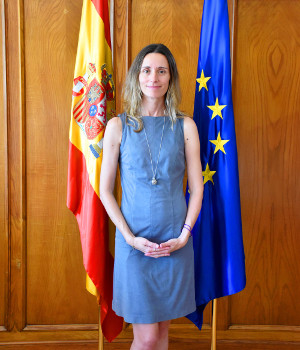 Degree in Law, University of Murcia. Member of the Prosecution Service since 1999. Course “Rapid Expert Assistance and Co-operation for Conflict Prevention Operations, Crisis Management and Post-Conflict Rehabilitation (REACT)”, delivered by the Helsinki Spain Foundation and the Complutense University of Madrid.
Degree in Law, University of Murcia. Member of the Prosecution Service since 1999. Course “Rapid Expert Assistance and Co-operation for Conflict Prevention Operations, Crisis Management and Post-Conflict Rehabilitation (REACT)”, delivered by the Helsinki Spain Foundation and the Complutense University of Madrid.
First appointment, Prosecutor’s Office of Girona. Senior Prosecutor of the Prosecutor’s Office of Madrid since 2009.
Prosecutors’ Adviser at the Centre for Legal Studies in 2011 and 2012.
From October 2012 since now, Senior Prosecutor attached to the Prosecutor head of the International Cooperation Unit of the State Prosecution General's Office.
Resident Twinning Adviser of the following EU funded Projects: Twinning Project “Fight against organized crime and international legal assistance”) in Poland (2002-2003); Twinning Project “Fight against organized crime and Corruption”) in Croatia (2005-2006); and Twinning Project “Support to the General Prosecutor's Office to Undertake Inspection & Evaluation of Prosecutors”) in Albania (2008-2010).
Project Leader of the Twinning Light Project in Croatia “Strengthening the work of the State School for Judicial Officials through upgrading its professional training programs and work flow”.
Key expert in the following projects: Twinning Project in Albania “Support to Anti-Money Laundering & Financial Crimes Investigation Structures in Albania' and in the Twinning Light Project “Fight against Corruption” in Slovakia (2008).
Greco Evaluator of the Council of Europe of Bosnia and Herzegovina (2nd Evaluation Round – Corruption).
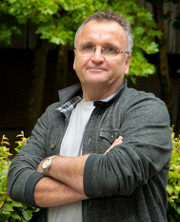
Professor Dr Barry Goldson
Professor, Charles Booth Chair of Social Science, University of LiverpoolFellow of the UK Academy of Social Sciences
Awarded for his extensive career as a researcher in the field of juvenile justice, analysing its development and implementation in different countries in the context of international human rights standards and the child-centered approach promoted by the Council of Europe, as well as for his work as an expert advisor in juvenile justice systems for the United Nations and different parliamentary committees and non-profit entities.
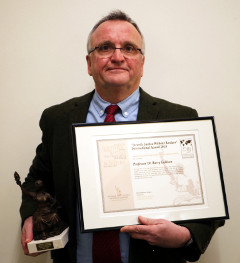 “Having been directly engaged with juvenile justice for most of my adult life, I am naturally honoured to be receiving a ‘Juvenile Justice Without Borders’ International Award from the International Juvenile Justice Observatory. The IJJO is an organisation that I have known - and worked with in a number of different ways - for many years. During this long association I have witnessed the reach of the IJJO grow and develop around the world and it is humbling to have my work recognised by an agency with such a commanding global foothold.
“Having been directly engaged with juvenile justice for most of my adult life, I am naturally honoured to be receiving a ‘Juvenile Justice Without Borders’ International Award from the International Juvenile Justice Observatory. The IJJO is an organisation that I have known - and worked with in a number of different ways - for many years. During this long association I have witnessed the reach of the IJJO grow and develop around the world and it is humbling to have my work recognised by an agency with such a commanding global foothold.
I am further humbled to be joining the highly prestigious company of previous recipients of this Award, many of whom I respect and admire for their outstanding contributions to the global juvenile justice project ”.
Barry Goldson
Biography
Professor Dr Barry Goldson holds the Charles Booth Chair of Social Science at the University of Liverpool, UK, and is a Fellow of the UK Academy of Social Sciences. He is also Visiting Professorial Research Fellow at the Faculty of Law, University of New South Wales, Sydney, Australia; Professorial Fellow in Social Science at Liverpool Hope University, UK; and Adjunct Professor at the School of Justice, QUT, Brisbane, Australia. He is a Fellow of the Academy of Social Sciences.
He is the Chairperson of the British Society of Criminology Youth Criminology/Youth Justice Network (YC/YJN) and Co-Chairperson of the European Society of Criminology Thematic Working Group on Juvenile Justice (TWGJJ). Professor Goldson has a long-standing association with the International Juvenile Justice Observatory and he is an academic member of the European Council for Juvenile Justice. In January 2018 he was appointed to the Advisory Board of the United Nations Global Study of Children Deprived of Liberty that is being led by Professor Manfred Nowak.
Professor Goldson has particular research interests in the interface between international human rights standards and comparative juvenile/youth justice regimes and he has researched and published extensively in these, and related, fields. He has presented his work at more than 200 conferences around the world including Australia, Canada, China, Chile, the USA and many countries in Europe. His most recent books include: ‘Youth Crime and Juvenile Justice’ (2009 – a three volume set); ‘Youth in Crisis? ‘Gangs’, Territoriality and Violence’ (2011); ‘Youth Crime and Justice’, 2nd edition (2015); ‘Justice and Penal Reform: Re-shaping the Penal Landscape’ (2016) and ‘Juvenile Justice in Europe: Past, Present and Future’ (2018). He is currently working on two further books that are scheduled to publish in 2019: ‘Youth Justice and Penalty in Comparative Context’ (with colleagues from Australia) and ‘Re-imagining Juvenile Justice’.
Professor Goldson is networked across the international research community and he also has well-established relations with a range of national and international governmental and non-governmental, human rights and progressive penal reform organisations.
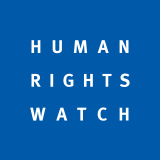
HUMAN RIGHTS WATCH
NGO represented by Jo Becker, Advocacy Director, Children's Rights DivisionAwarded for its commitment to protecting the rights of children around the world, especially those in contact with the law, by denouncing violations of their rights; reporting on the shortcomings of justice systems to incorporate international standards; raising awareness among stakeholders on the need to reform laws, policies and programs, always focusing on the best interests of the child; and giving voice to those who defend the most vulnerable members of society.
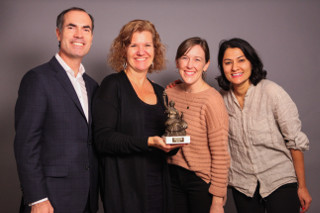 “Human Rights Watch is deeply honoured to receive the Juvenile Justice without Borders Reward from the International Juvenile Justice Observatory.
“Human Rights Watch is deeply honoured to receive the Juvenile Justice without Borders Reward from the International Juvenile Justice Observatory.
In our work around the world, we see far too many children who are locked up with little chance of a decent future because of overly punitive responses to alleged offences.
Too many governments use detention as a first rather than a last resort, and neglect their obligation to ensure children's rehabilitation and their integration into society. Human Rights watch has worked around the globe to document abuses against children in criminal justice systems and to advocate on their behalf.”
Jo Becker
Children’s Rights Division at Human Rights Watch
For over two decades, the Children’s Rights Division at Human Rights Watch has worked to advance the rights of children worldwide.
Recognizing that children are at heightened risk of exploitation and abuse, we investigate their mistreatment wherever it occurs, expose violations in hard-hitting reports and targeted media outreach, and pressure governments to protect and defend young people’s rights.
Our work covers a range of children’s rights issues, including the devastating impact of war on children’s lives, the lack of access to education for young people in many countries, the physical and emotional toll on children of the worst forms of child labor, the plight of unaccompanied refugee and migrant children, and the inhumane treatment of youth by juvenile justice systems.
We have documented abuses in juvenile justice systems around the world, working in countries on all continents, including Burundi, Brazil, Egypt, Lebanon, Libya, Pakistan, Papua New Guinea, Saudi Arabia, Yemen, and the United States. In recent years, we have focused on juvenile justice in the United States, which incarcerates more children than any other country in the world. In close partnership with local organizations, we have helped make critical changes to California laws, ending the transfer of 14 and 15-year old children to the adult criminal justice system, protecting children during police interrogations, and expanding parole prospects for thousands of young people serving extremely long prison sentences for crimes committed before they turn 18.
Biography
Jo Becker
Advocacy Director, Children's Rights Division
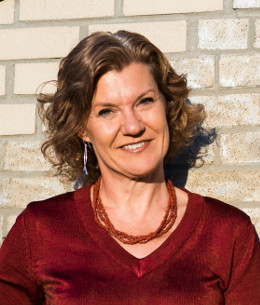 Jo Becker is a child rights activist with over 20 years of experience working for human rights and social justice. As the children’s rights advocacy director for Human Rights Watch, she has been on the forefront of international efforts to end the use of child soldiers, child labor, and to protect other vulnerable children. She has investigated children’s rights in Burma, Ghana, India, Indonesia, Morocco, Nepal, Sri Lanka, Uganda, and the United States and has published widely in major international news publications. She is an award-winning author of two books, Campaigning for Justice: Human Rights Advocacy in Practice, and Campaigning for Children: Strategies for Advancing Children’s Rights. She also teaches human rights at Columbia University.
Jo Becker is a child rights activist with over 20 years of experience working for human rights and social justice. As the children’s rights advocacy director for Human Rights Watch, she has been on the forefront of international efforts to end the use of child soldiers, child labor, and to protect other vulnerable children. She has investigated children’s rights in Burma, Ghana, India, Indonesia, Morocco, Nepal, Sri Lanka, Uganda, and the United States and has published widely in major international news publications. She is an award-winning author of two books, Campaigning for Justice: Human Rights Advocacy in Practice, and Campaigning for Children: Strategies for Advancing Children’s Rights. She also teaches human rights at Columbia University.

MISIONES SALESIANAS
NGO represented by José Antonio San Martín, DirectorAwarded for its work in more than 130 countries to remove children from situations of exclusion, poverty, violence and abuse, and to promote education, employment and healthy lifestyle habits. Its work to prevent juvenile delinquency and the social reintegration of child soldiers is particularly recognised, with projects focused on offering children an education and dignified living conditions that help them reach full integration in society, separating them from marginality and crime.
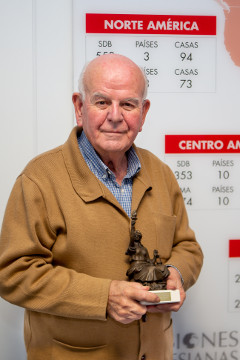 “This award, ‘Juvenile Justice Without Borders’, is a significant recognition of the work that we do at Misiones Salesianas, together with Salesian missionaries, for children and young people in 136 countries around the world. Protecting and educating minors is our raison d’être, and awards like this give us the energy to move forward with our mission.”
“This award, ‘Juvenile Justice Without Borders’, is a significant recognition of the work that we do at Misiones Salesianas, together with Salesian missionaries, for children and young people in 136 countries around the world. Protecting and educating minors is our raison d’être, and awards like this give us the energy to move forward with our mission.”
José Antonio San Martín
In favour of youth and childhood
At Misiones Salesianas, we work to protect, educate and give a voice to children and young people around the world, especially those at risk of exclusion or serious vulnerability. More than one and a half million minors and young people are educated in Salesian centres across the globe. We believe that education is one of the most powerful tools to fight against poverty and inequality. Education is an opportunity to change the future of thousands of children and young people. We work so that children and young people have access to spaces in which they feel safe. As such, we have shelters for children living in the streets and for minors who have been victims of human trafficking, exploitation and abuse… We also work with displaced minors and refugees in refugee camps where we provide company and education. We fight so that their rights are not violated, and so that they can have a life of hope.
Playing and the right to have fun is a key forum for children and young people to develop a comprehensive and quality education. Through playing, sports, creative activities… young people experience the values of teamwork, friendship, solidarity… The Salesian missionaries therefore have almost 2000 youth centres worldwide, where more than 800,000 children and young people gather every day. These centres also work towards youth and child participation. Children are the future of society, but they are also the present, and their voices must be heard.
Biography
José Antonio San Martín
Director
José Antonio San Martín is a Salesian priest born in A Coruña, Spain. He has dedicated his life to working with young people and in education. He has a degree in History from the University of Oviedo and a degree in Pastoral Theology plus a PhD from the Madrid campus of the Pontifical University of Salamanca. Furthermore, he has a Masters in Family Counselling and Mediation from the Comillas Pontifical University (Madrid).
He teaches courses to teachers and educators on the subject of pedagogy and has written various papers, including Mediación Escolar (School Mediation); Relación profesor-alumno (Student-Teacher Relations); A la búsqueda del Dorado (In Search of El Dorado); and 10 criterios para educar hoy a tus alumnos (10 Rules for Teaching Your Students Today), amongst others.
He has been the director of Misiones Salesianas since 2014, and he is dedicated to working so that children and young people worldwide have the opportunities they need to have futures full of hope.
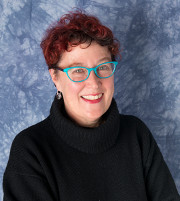
Professor Terrie E. Moffitt
Professor at Nannerl O. Keohane University, Duke University (USA) & at MRC Social, Genetic and Developmental Psychiatry Centre, King’s College London (UK)Associate Director, Dunedin Multidisciplinary Health and Development Study, University of Otago, Dunedin (New Zealand)
Awarded for her distinguished academic career dedicated to the comprehensive analysis of human development, including antisocial and criminal behaviour, her research having contributed to the development of more effective evidence-based juvenile justice policies and practices in various countries. The IJJO also highlights her work in different longitudinal psychological studies whose findings help to improve the understanding of various aspects of human behaviour.
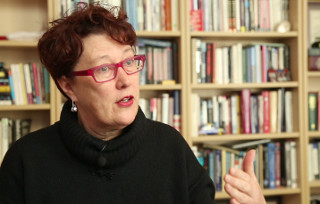 “This is a very special award that honours the protection of rights of children worldwide, especially children who are in conflict with the law.[...] I have studied children in conflict with the law by tracking them for many decades. These kind of projects are called Longitudinal Studies. I think Longitudinal Studies […] give hope to professionals who work in the juvenile justice system because studies like mine remind us that most young offenders will become productive citizens.”
“This is a very special award that honours the protection of rights of children worldwide, especially children who are in conflict with the law.[...] I have studied children in conflict with the law by tracking them for many decades. These kind of projects are called Longitudinal Studies. I think Longitudinal Studies […] give hope to professionals who work in the juvenile justice system because studies like mine remind us that most young offenders will become productive citizens.”
Terrie E. Moffitt
Biography
When it comes to understanding abnormal and antisocial behaviors, Terrie E. Moffitt takes the long view. In addition to founding the Environmental-Risk Longitudinal Twin Study, which began in 1994 and follows 2,200 British twins and their families, she is Associate Director of the Dunedin Multidisciplinary Health and Development Study in New Zealand, another ongoing longitudinal study that started in 1972.
Through these studies, Moffitt has been able to link adult antisocial outcomes back to their childhood origins. Her dual taxonomy of antisocial and criminal behavior divides those who exhibit these behaviors into a “life-course persistent” group, whose antisocial behaviors begin in childhood and persist throughout adulthood, and an “adolescence-limited” group, who eventually reform as they become law-abiding adults. This theory has influenced juvenile justice policy and practice in several countries. Moffitt's empirical work on this theory has earned a number of awards, including the 2007 Stockholm Prize in Criminology and the 2010 Jacobs Science Prize.
She has other lines of research as well: her team’s groundbreaking gene-environment interaction studies were the first in mental health research to show a specific genotype (a MAOA polymorphism) could predict vulnerability to antisocial and violent behavior, but only in the presence of certain environmental conditions (maltreatment during childhood). Moffitt's research team, based at Duke University and King's College London, is now incorporating techniques from neuroimaging, genomics, and biomarker research into her cohort studies, aiming to increase understanding of how people who experience mental disorders grow and change over the life course, from childhood to late life.
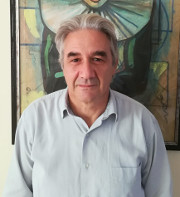
Dr. Alessandro Padovani
Psychologist, Director of the Social and Educational Area of the Istituto Don Calabria (Italy)Awarded for his long career dedicated to the prevention of juvenile delinquency and the rehabilitation of young people in conflict with the law. He is recognised in particular as an expert of Italian juvenile courts, where he has promoted an approach focused on the specific needs of children, and for his training and research work in this field at the Istituto Don Calabria.
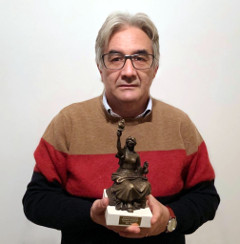 “The Juvenile Justice Without Borders International Award has two main meanings to me. It’s an incentive to maintain the human and professional commitment to juveniles who, mostly because of social exclusion, are processed by juvenile justice services. Moreover, it represents the recognition of all of my colleagues who, in a daily basis, work with me to offer new opportunities and a chance for social insertion for all adolescents.
“The Juvenile Justice Without Borders International Award has two main meanings to me. It’s an incentive to maintain the human and professional commitment to juveniles who, mostly because of social exclusion, are processed by juvenile justice services. Moreover, it represents the recognition of all of my colleagues who, in a daily basis, work with me to offer new opportunities and a chance for social insertion for all adolescents.
This award is dedicated to the future of all these adolescents.
Thanks.”
Alessandro Padovani
Biography
Alessandro Padovani, 54, has a Bachelor’s Degree in Psychology and is currently Don Calabria Institute’s Social and Educative Department Director. As such, he directly manages children and teenagers protection services in Italy, Romania, Portugal and Ukraine. He practiced as an Honorary Judge in Venice Juvenile Court, from 1996 to 2004, and as an Honorary Judge in the Juvenile Section of Venice Court of Appeal, from 2005 to 2010.
Dr. Padovani is in charge of implementing services and programmes concerning juvenile protection and juvenile justice. He is a Scientific Committee member of the Mental Health, Law and Policy Institute at Simon Fraser University (Vancouver, Canada). Several of his papers and articles on intervention programmes within juvenile justice systems were published in international journals in Italy, Romania, Colombia, Mexico and Brazil.
Dr. Padovani is currently participating and coordinating several projects related to juvenile justice and juvenile protection programmes’ integration in European countries (Romania, Portugal and Ukraine), in Paraguay, Dominican Republic and Kenya.